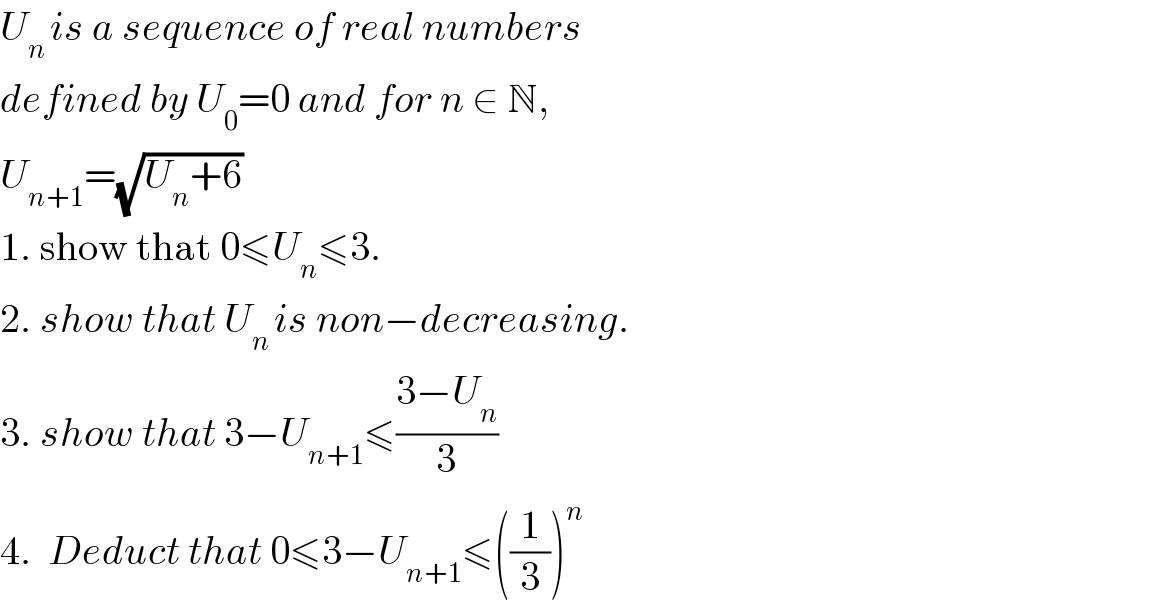
Question Number 124106 by mathocean1 last updated on 30/Nov/20

$${U}_{{n}\:} {is}\:{a}\:{sequence}\:{of}\:{real}\:{numbers}\: \\ $$$${defined}\:{by}\:{U}_{\mathrm{0}} =\mathrm{0}\:{and}\:{for}\:{n}\:\in\:\mathbb{N},\: \\ $$$${U}_{{n}+\mathrm{1}} =\sqrt{{U}_{{n}} +\mathrm{6}} \\ $$$$\mathrm{1}.\:\mathrm{show}\:\mathrm{that}\:\mathrm{0}\leqslant{U}_{{n}} \leqslant\mathrm{3}. \\ $$$$\mathrm{2}.\:{show}\:{that}\:{U}_{{n}\:} {is}\:{non}−{decreasing}. \\ $$$$\mathrm{3}.\:{show}\:{that}\:\mathrm{3}−{U}_{{n}+\mathrm{1}} \leqslant\frac{\mathrm{3}−{U}_{{n}} }{\mathrm{3}} \\ $$$$\mathrm{4}.\:\:{Deduct}\:{that}\:\mathrm{0}\leqslant\mathrm{3}−{U}_{{n}+\mathrm{1}} \leqslant\left(\frac{\mathrm{1}}{\mathrm{3}}\right)^{{n}} \\ $$
